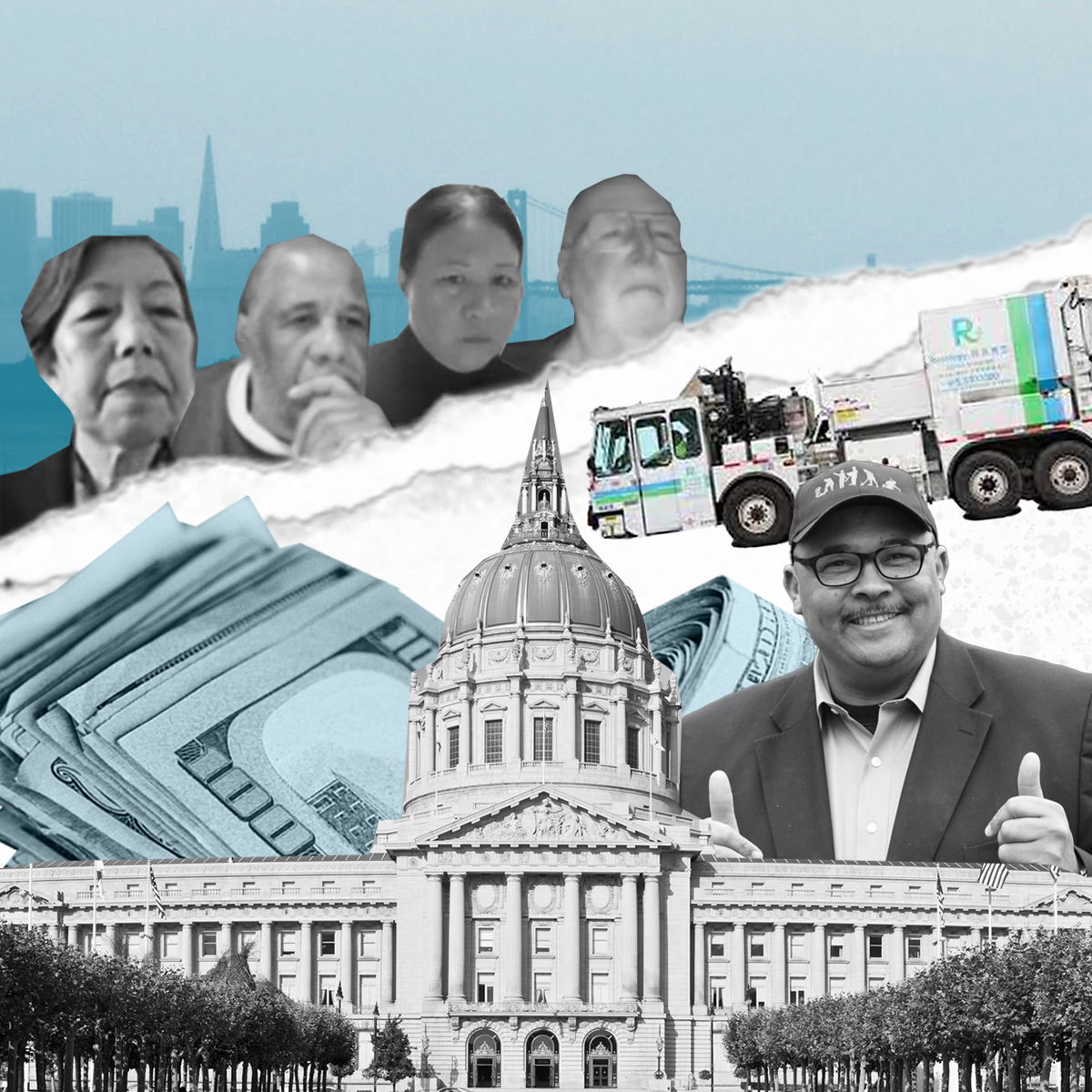Last-minute concerns over a pair of anti-corruption proposals derailed plans Friday for San Francisco’s Ethics Commission to decide whether to place the measures on the June ballot.
The potential ballot measures, proposed by staff for the Ethics Commission, are meant to address loopholes and shortcomings in ethics law exposed by the corruption scandal surrounding former Public Works head Mohammed Nuru.
But the Ethics Commission delayed voting Friday after representatives of city museums and other entities called into the meeting to ask for more time to review the proposals for their potential impacts, including on legitimate fundraising efforts.
An association representing city department heads and managers also invoked its bargaining rights at the eleventh hour to hold up the vote on the larger of the two ethics reform measures.
One of the proposals would bar high-ranking city officials from asking for donations from contractors they do business with or from other individuals who seek to influence them. It closely mirrors legislation tentatively approved Tuesday by the Board of Supervisors.
The other proposal is a more comprehensive ethics reform package that includes expanding what payments are considered bribes under city law, imposing penalties for officials who fail to disclose their relationships with individuals engaged in government business before them and requiring widespread ethics training for city workers.
Among those who asked for more time to review the proposals were representatives of the Fine Arts Museums of San Francisco, the Asian Art Museum, the Office of Economic and Workforce Development and the San Francisco Arts Commission.
Jason Seifer, chief financial officer for the Fine Arts Museums of San Francisco and its associated nonprofits, said the museums only learned of the lengthy proposals earlier this week and had not had time to review them. Seifer said the museums have relied heavily on fundraising through its nonprofits for more than half a century.
“We only just heard about over 200 pages of changes to gift law legislation just in the past two days,” Seifer told the Ethics Commission. “This could fundamentally upend 60 years of activity that has been going on at the museums.”
At least some members of the commission were already considering delaying the vote on the narrower proposal restricting behested payments to wait and see whether the Board of Supervisors would officially approve similar legislation at its meeting next week.
But even if the legislation clears the Board of Supervisors, Commissioner Daina Chiu said she might still be interested in placing the measure on the ballot to ensure that the changes could not be easily undone without the will of the voters.
The bargaining request by the city department heads and managers came as a surprise.
Patrick Ford, senior policy and legislative affairs counsel for the Ethics Commission, said the Municipal Executives Association asked to extend the “meet-and-confer” process over the proposal late Thursday after not providing feedback on it for several weeks.
“We believed the process was completed,” Ford told the commission.
Representatives for the Municipal Executives Association did not immediately respond to an email seeking comment Friday.
Ford pitched the ethics reform package as being a key part of the government regaining the public’s trust following the Nuru scandal.
“People are doubting the integrity of city processes,” Ford said. “This is one of the biggest, most important things we can achieve through this project and engaging the voters through a ballot measure is one way to have them be included.”
The Ethics Commission is expected to hear the proposals again on Jan. 14. It has until early March to decide whether to place either measure on the June ballot.
michael@sfstandard.com
